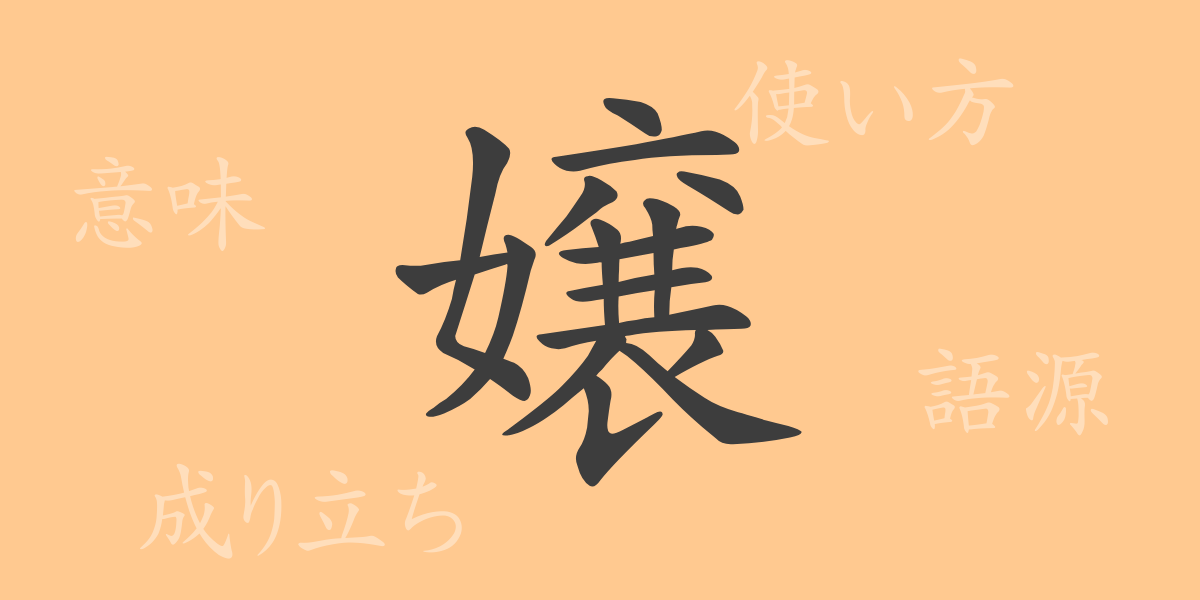Japanese language is renowned for its rich expressiveness, and the kanji ‘嬢’ (じょう) encapsulates the depth of history and culture each character holds. This article explores the origins, meanings, and usages of ‘嬢’, unraveling the phrases and idioms associated with it to discover the spirit embedded in this single character.
Origins of 嬢 (じょう)
The character ‘嬢’ originated from ancient Chinese texts, where its prototype can be seen in ‘説文解字’. It derived from ‘娘’, representing a woman walking gracefully, and evolved into ‘嬢’ over time. Originally used to kindly denote young women, it was adopted into Japanese and developed uniquely within the culture.
Meaning and Usage of 嬢
‘嬢’ primarily means ‘young woman’ or ‘unmarried woman’. It is also used respectfully or affectionately similar to ‘Miss’ in English. For example, a shop assistant may be referred to as ‘店員嬢’ (てんいんじょう), and a term of endearment like ‘お嬢さん’ is commonly used.
Readings, Stroke Count, and Radical of 嬢
‘嬢’ is used in various readings in Japanese:
- Readings: On’yomi (おんよみ) ‘ジョウ’, commonly known in the context of ‘お嬢さん’ (おじょうさん) though it does not have specific kun’yomi (くんよみ).
- Stroke Count: ‘嬢’ consists of 16 strokes.
- Radical: The radical of ‘嬢’ is 女 (おんなへん), which relates to women.
Phrases, Idioms, and Proverbs Using 嬢 and Their Meanings
Phrases and idioms incorporating ‘嬢’ reflect unique nuances and cultural backgrounds:
- ‘お嬢様’ (おじょうさま): Used to refer to a daughter of a wealthy family or as a polite form of address.
- ‘花嫁嬢’ (はなよめじょう): Refers to a bride at a wedding.
- ‘令嬢’ (れいじょう): A polite term for a daughter from a socially high-status family.
Conclusion on 嬢
The kanji ‘嬢’ has been cherished in the Japanese language from its origins to the present day, utilized broadly from specifically referring to young women to expressing respect or affection. ‘嬢’ epitomizes the delicacy and depth of Japanese culture, serving as a vital symbol in the language’s lexicon.

























